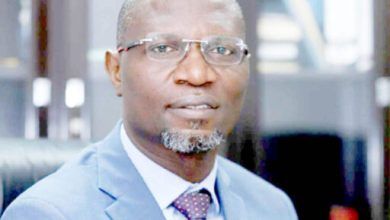
The Federal Competition and Consumer Protection Commission (FCCPC) recently convened a town hall meeting in Kano to address pressing issues related to food inflation in Nigeria, particularly the role of grain hoarders and smugglers.
During this gathering, FCCPC’s Executive Vice Chairman, Tunji Bello, articulated the significant challenges posed by unethical practices in the agricultural sector, which contribute to rising food prices and threaten national food security.
Bello highlighted that investigations conducted by the FCCPC uncovered a troubling trend among some grain merchants who engage in hoarding newly harvested grains. By stockpiling these commodities, they create an artificial scarcity that drives up prices for consumers.
Bello pointed out that certain unscrupulous actors go to the extent of smuggling these grains across the nation’s borders to sell them at a premium, exacerbating the inflationary pressures already felt by households. This behavior not only undermines fair market practices but also jeopardizes the overall food security of the country.
In his address, Bello appealed to the stakeholders in Kano, including industry leaders, market heads, and farmers, to collaborate in curbing these unethical practices. He emphasized that while not all actors in the market engage in such behaviors, it is essential to address the actions of the few who do, as these can have far-reaching consequences for the entire economy.
Bello underscored the importance of collective responsibility in promoting fair pricing and ensuring that all Nigerians have access to affordable food.
In addition to hoarding and smuggling, Bello identified other unethical practices affecting food prices, such as price fixing and the imposition of artificial barriers, like entrance levies imposed by market associations. These actions further complicate the landscape of food distribution and contribute to inflated prices, making it difficult for consumers to access essential goods.
While the FCCPC Act prescribes severe penalties, including fines and imprisonment for offenders, Bello expressed a preference for beginning with dialogue rather than immediate punitive measures. He argued that a collaborative approach would be more effective in fostering a culture of compliance and promoting ethical practices within the market.
Bello also took the opportunity to discuss the federal government’s efforts to alleviate economic hardships faced by Nigerians. He emphasized that President Bola Tinubu is attentive to public concerns and has implemented several policies aimed at reducing the economic burden on citizens. These measures include the removal of value-added tax (VAT) and excise duties on pharmaceuticals, as well as various tax cuts designed to support micro, small, and medium enterprises (MSMEs).
Additionally, the government is facilitating access to credit for public transportation operators to encourage a shift from petrol to more affordable compressed natural gas (CNG), which is expected to lead to reduced transportation costs for the public.





